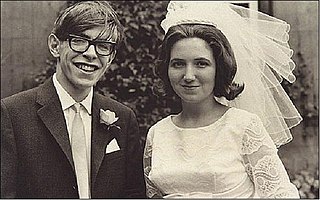A Quote by Ralph Waldo Emerson
When a man does not write his poetry, it escapes by other vents through him.
Related Quotes
Proust writes, he remembers, physically. He depends on his body to give him the information that will bring him to the past. His book is called 'In Search of Lost Time,' and he does it through the senses. He does it through smell. He does it through feeling. He does it through texture. It is all physically driven, that language.
From the root, the sap rises up into the artist, flows through him, flows to his eye. Overwhelmed and activated by the force of the current, he conveys his vision into his work. And yet, standing at his appointed place as the trunk of the tree, he does nothing other than gather and pass on what rises from the depths. He neither serves nor commands he transmits. His position is humble. And the beauty at the crown is not his own; it has merely passed through him.
A man follows the path laid out for him. He does his duty to God and his King. He does what he must do, not what pleases him. God's truth, boy, what kind of world would this be if every man did what pleased him alone? Who would plough the fields and reap the harvest, if every man had the right to say, 'I don't want to do that.' In this world there is a place for every man, but every man must know his place.
Every work of art reaches man in his inner powers. It reaches him more profoundly and insidiously than any rational proposition, either cogent demonstration or sophistry. For it strikes him with two terrible weapons, Intuition and Beauty, and at the single root in him of all his energies... Art and Poetry awaken the dreams of man, and his longings, and reveal to him some of the abysses he has in himself.
A man's real faith is never contained in his creed, nor is his creed an article of his faith. The last is never adopted. This it is that permits him to smile ever, and to live even as bravely as he does. And yet he clings anxiously to his creed, as to a straw, thinking that that does him good service because his sheet anchor does not drag.
The gas man came one day, and he said, 'What does your husband do?' so I told him, and he said, 'What's the use of that?' He had a point, but on the other hand, I firmly believed in Stephen and his brilliance. I encouraged him to popularise his science just because the gas man had been so insulting.
Every subject's duty is the King's; but every subject's soul is his own. Therefore, should every soldier in the wars do as every sick man in his bed, wash every mote out of his conscience; and dying so, death is to him advantage; or not dying, the time was blessedly lost wherein such preparation was gained; and in him that escapes, it were no sin to think that, making God so free an offer, He let him outlive the day to see His greatness and to teach others how they should prepare.
A really wise man is feminine, receptive, passive. That's why Buddha looks so feminine. That quality of passiveness, that quality of receptivity... He is just a receptacle. He reflects life: he allows life to reflect in him, to be reflected through him. He sings the song that existence wants to sing through him. He has no ideas of his own; he does not hinder.
If you teach a poor young man to shave himself, and keep his razor in order, you may contribute more to the happiness of his life than in giving him a thousand guineas. This sum may be soon spent, the regret only remaining of having foolishly consumed it; but in the other case, he escapes the frequent vexation of waiting for barbers, and of their sometimes dirty fingers, offensive breaths, and dull razors.
But what a feeling can come over a man just from seeing the things he believes in and hopes for symbolized in the concrete form of a man. In something that gives a focus to all the other things he knows to be real. Something that makes unseen things manifest and allows him to come to his hopes and dreams through his outer eye and through the touch and feel of his natural hand.
Men and women are made for each other, but their mutual dependence differs in degrees; man is dependent on woman through his desires; woman is dependent on man through her desires and also through her needs; he could do without her better than she can do without him. She cannot fulfill her purpose in life without his aid, without his goodwill, without his respect.....Nature herself has decreed that woman, both for herself and her children, should be at the mercy of man s judgment.








































